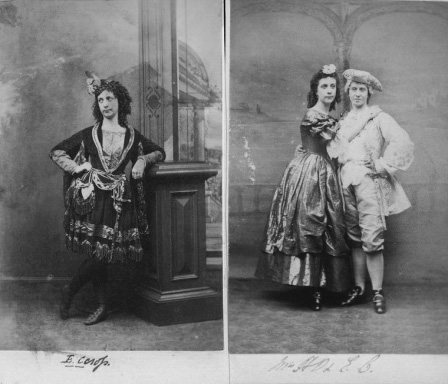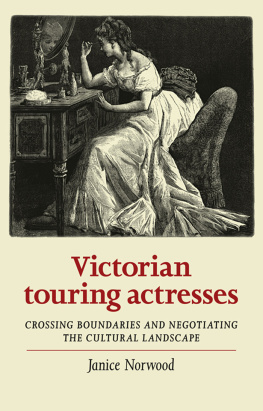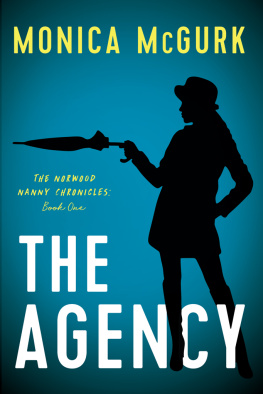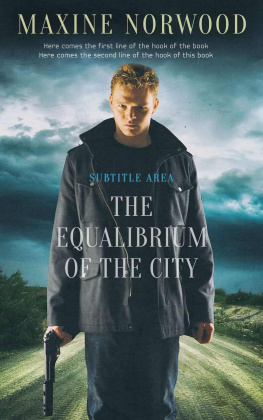Janice Norwood - Victorian Touring Actresses
Here you can read online Janice Norwood - Victorian Touring Actresses full text of the book (entire story) in english for free. Download pdf and epub, get meaning, cover and reviews about this ebook. year: 2020, publisher: Manchester University Press, genre: Non-fiction. Description of the work, (preface) as well as reviews are available. Best literature library LitArk.com created for fans of good reading and offers a wide selection of genres:
Romance novel
Science fiction
Adventure
Detective
Science
History
Home and family
Prose
Art
Politics
Computer
Non-fiction
Religion
Business
Children
Humor
Choose a favorite category and find really read worthwhile books. Enjoy immersion in the world of imagination, feel the emotions of the characters or learn something new for yourself, make an fascinating discovery.
- Book:Victorian Touring Actresses
- Author:
- Publisher:Manchester University Press
- Genre:
- Year:2020
- Rating:5 / 5
- Favourites:Add to favourites
- Your mark:
- 100
- 1
- 2
- 3
- 4
- 5
Victorian Touring Actresses: summary, description and annotation
We offer to read an annotation, description, summary or preface (depends on what the author of the book "Victorian Touring Actresses" wrote himself). If you haven't found the necessary information about the book — write in the comments, we will try to find it.
Victorian Touring Actresses — read online for free the complete book (whole text) full work
Below is the text of the book, divided by pages. System saving the place of the last page read, allows you to conveniently read the book "Victorian Touring Actresses" online for free, without having to search again every time where you left off. Put a bookmark, and you can go to the page where you finished reading at any time.
Font size:
Interval:
Bookmark:
Debuts and learning the craft
This example, though unremarkable in itself, is typical of the attention drawn to debut performances. They were marketed as notable events where the novelty of the newcomer and uncertainty about her ability were intended to pique the audience's interest. Success at these daunting occasions depended upon the putative actress's suitability for the role and whether she had been adequately prepared. Surprisingly little has been written about how she might accomplish the latter in the mid-Victorian era.
). Opportunities with potential to develop vital theatrical skills included working as a child performer, taking part in amateur productions, giving dramatic readings or paying for tuition from an experienced professional performer. Later in the century an alternative option was to attend one of the growing number of dramatic schools. The various training routes into the dramatic profession presented different advantages and could not only influence the actress's initial reception but also have career-long implications. In practice, many actresses took more than one of these approaches.
: 243). Many other families included their children in smaller-scale ventures.
It was also standard practice for a young girl to portray male and female characters. Alongside such named parts, Seaman may also have appeared as one of the uncredited supernumeraries in the Victoria's pantomime.
: 149). The young Seaman did, however, gain valuable stage experience from her early roles and developed sufficient proficiency to procure engagements at the Albert and Garrick Royal Amphitheatre in Whitechapel from February to October 1855 and then at the Victoria where she remained in virtually continuous employment from December 1856 until March 1859. Frequently required to play at least one new role per week, Seaman thus completed her training in melodramatic, comedic and pantomime performance.
him in the majority of her early engagements even if his professional standing could provide access only to the lower end of the theatrical hierarchy.
In adulthood she stayed in the profession and continued to have a close relationship with her parents, suggesting that she did not feel she had been unfairly coerced into a theatrical career.
Whatever the truth of the girl's working pressures and who was ultimately responsible, the fact remains that she had felt depressed enough to risk suicide (and might well have succeeded). Although Love went on to have a successful stage career, her case highlights deficiencies in the support mechanisms for juvenile performers.
.
). Ideally an actress would start as an ingnue or walking lady and in time be promoted to leading roles according to her specialism, from which position she could hope to launch herself onto the stages of London's West End, then (as now) regarded as the ultimate destination of choice. This was the trajectory of Emily Cross, who in later life gave an interview in which she attested to the chief benefits of beginning with a stock company in a large municipal theatre:
Cross's acting training took place in the north-east of England under the watchful eye of respected manager Edward Dean Davis. An unusually detailed account of his role in her career is possible thanks to a rich archive of material now located in the Victoria and Albert Museum's Leaving her home in the Channel Islands, she would spend the next five years at the Theatre Royal, Newcastle. There is no extant contract but presumably she was engaged on the understanding outlined in an advertisement that Davis circulated in 1859:
This type of arrangement offered no guarantee of stage exposure or success. The advice actor David H. Jones gave to two sisters reveals one of the blocks to getting noticed. In the sample letter he composed to show how to negotiate with a new manager, he wrote: I am desirous of knowing if we should be required to go on in groups as this is the cause of our not writing for re-engagement at Bristol, at which theatre we were two seasons.). That Davis took a personal interest in developing his protge's dramatic skill is clear from Cross's recollections, though his means of instruction was perhaps unusual:

Emily Cross, mid 1860s, with (right) Mrs Henry Davis, another regular in the Newcastle Theatre Royal company.
: 6), in which she laments:
: 71)
In a precarious position in a competitive market, it could be difficult for new actresses to have sufficient confidence in their own worth and employability to refuse lowly offers. Cross was shielded from this problem. An enquiry for her services came in September 1865 from the Royal Princess's Theatre in London when she was invited to play Josephs, the pathetic penitentiary, in the dramatisation of Charles Reade's prison drama, Its Never Too Late to Mend. Although this would have given Cross her first London engagement, Davis did not consider the part worthy of her.
She married in April 1868 to Mark Ernest Jobling, who had been born in Newcastle but had relocated to Cornwall.
Cross's case illustrates the benefits of having a seasoned and well-regarded manager directing her early career and acting as a mentor. How representative her positive experience was is harder to determine. Certainly, correspondence in the same archive provides evidence of the less satisfactory history of another hopeful. Madame Juanita Garcia joined the Newcastle company at the same time as Cross and, like her, had a background in singing. They appeared together at the start of the season in 1862. Yet her engagement lasted barely a month for reasons that are set out in a letter from her husband dated 13 October:
The uneducated novice he refers to is Cross. Garcia's personal antipathy towards her is evident in an indignant note from the injured party in which she claims a payment of two shillings and four pence in recompense for costume items she alleges Cross owes:
Whether the complaints were justified or whether Garcia was temperamentally unsuited or lacking in talent is impossible to judge. Her theatrical career stalled and she appears to have returned to teaching singing.
For a fledgling actress the strategy of practising her craft in provincial or minor London theatres before risking appearing on the more prestigious West End stages had several benefits in terms of development of skills and repertoire. A nostalgic recollection published in the Saturday Review in 1888 suggests that she might also have relative freedom of interpretation:
Another bonus was that the major dramatic critics of the day would not witness the novice's early, unrefined stage endeavours and hence coarseness of skill could be forgotten. Moreover, establishing a regional connection through a prolonged period of work in a provincial town engenders a career-long advantage. The relatively static local audiences often proved loyal supporters, even when the theatre's management changed. Subsequently the town served as the locus of return visits as a local favourite. Cross's popularity in Newcastle is demonstrated by the fact that when her departure from the Theatre Royal was announced in 1867, company members presented her with a gold bracelet and an appeal was launched in the press for a special subscription for her. A silver salver and a purse containing 100 guineas (a substantial sum at the time) was duly presented to her after her Drury Lane debut.
It was harder to cultivate such close associations at the principal London theatres since they were more volatile, with establishments moving in and out of fashion and, for the most part, subject to continual ownership mutation. This study thus demonstrates the trifold importance of provincial theatres: as training grounds for performers, as suppliers of novelty in the form of new talent to refresh the capital's stages and as insurance for the long-term financial health of touring actresses. Despite the assumptions of artistic superiority, London's theatres and its actresses continued to depend upon the regions.
Font size:
Interval:
Bookmark:
Similar books «Victorian Touring Actresses»
Look at similar books to Victorian Touring Actresses. We have selected literature similar in name and meaning in the hope of providing readers with more options to find new, interesting, not yet read works.
Discussion, reviews of the book Victorian Touring Actresses and just readers' own opinions. Leave your comments, write what you think about the work, its meaning or the main characters. Specify what exactly you liked and what you didn't like, and why you think so.












